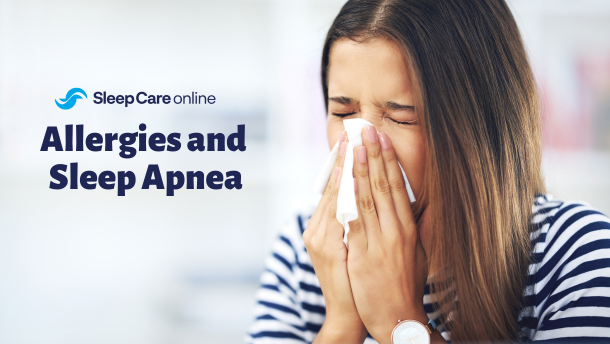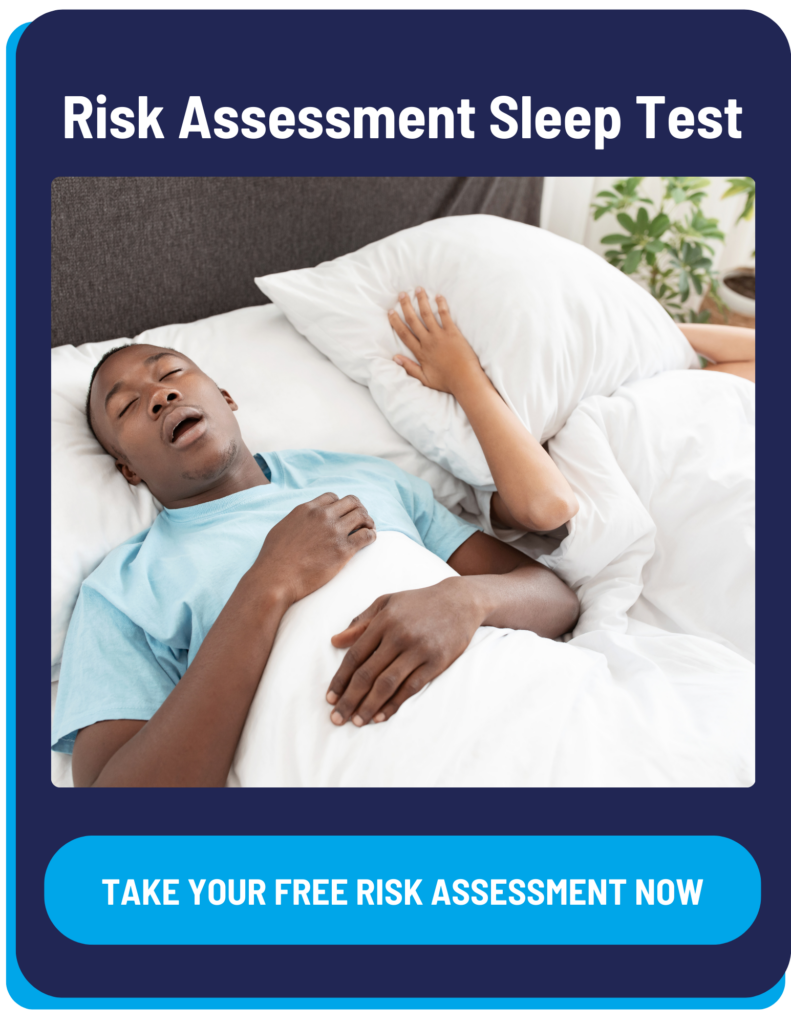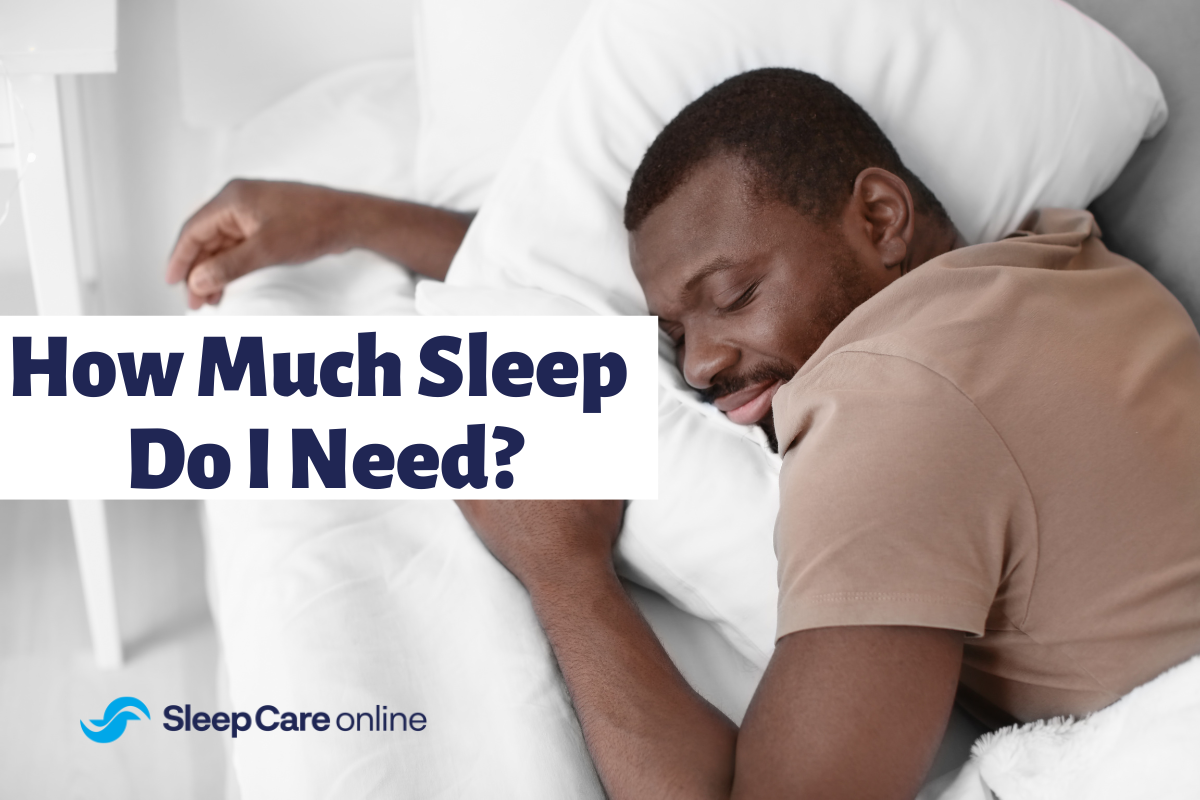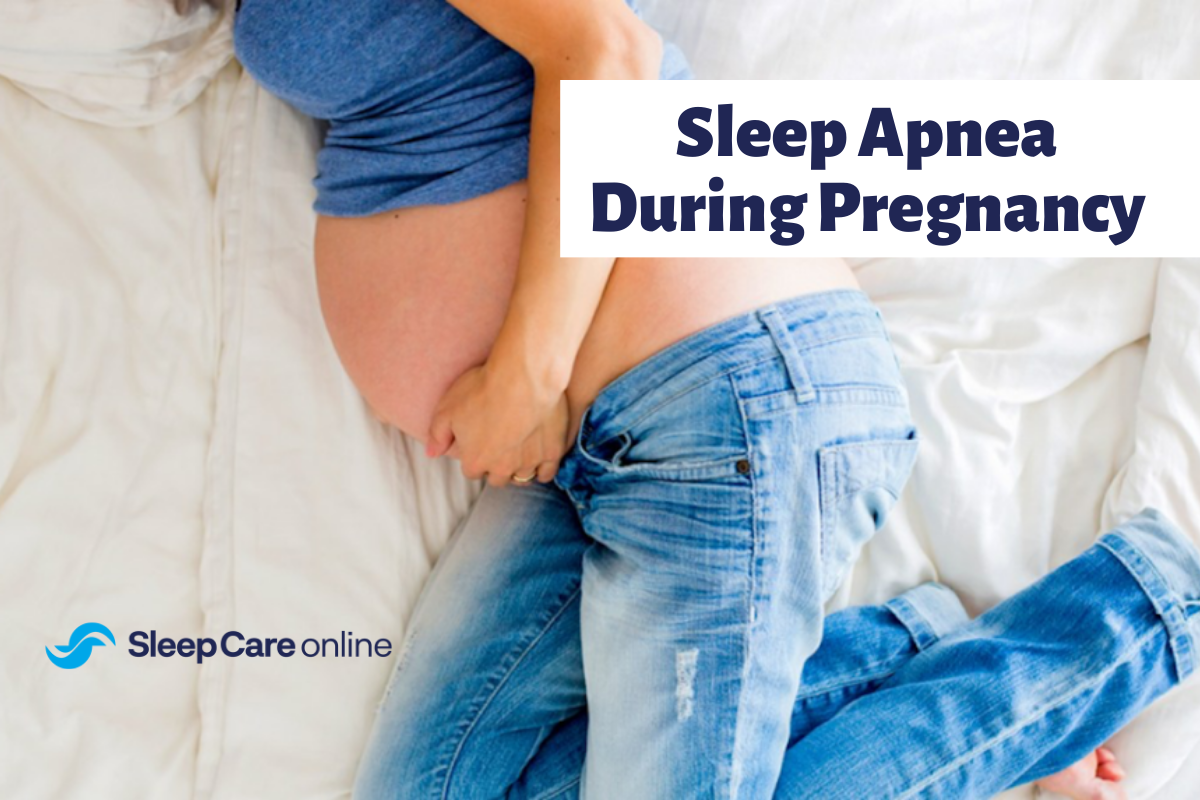Key Takeaways:
- Allergies can potentially worsen or contribute to obstructive sleep apnea (OSA).
- Allergies impact sleep apnea by causing nasal congestion, snoring, narrowed airways, and more.
- However, certain lifestyle changes can improve sleep if you are experiencing allergies. Learn more in this article.

Your sleep apnea can be affected by other respiratory issues, such as allergies. Whether your allergies are year-round or seasonal, they can play a part in the effectiveness of your CPAP therapy. Understanding your allergies can help you improve how you manage your sleep apnea treatment.
What are Allergies and Why are They Seasonal?
Allergies are your body’s reaction to harmless airborne substances known as allergens like pollen, mold, dust, or pet dander. The allergic reaction is your body going into full defense mode at what it perceives to be a health threat. The reactions are the unpleasant symptoms that allergy sufferers experience such as sneezing, runny nose, and rash.
Seasonal allergies are the result of high amounts of allergens present in the air during certain times of the year.
Causes of Seasonal Allergies
Most seasonal allergies are caused by an abundance of allergens due to seasonal weather conditions. Warmer weather can trigger the release of airborne pollen from different types of grasses and flowers. Changing weather during autumn can amplify mold allergies due to increased rainfall and decaying spring vegetation.
Can Allergies Impact Sleep?
When seasonal allergies escalate, they can cause nasal congestion, sinus issues, and persistent sneezing and coughing, which can affect normal sleep patterns. Allergy sufferers may not sleep through the night due to these symptoms or must disrupt sleep intermittently to manage a runny nose.
Nasal Congestion
Clogged nasal passages can cause difficulty breathing during sleep.
Inflammation and Increased Airway Sensitivity
Allergic reactions can cause inflamed sore throat and nose which can disrupt sleep.
Increased Mucus Production
A runny nose can keep you reaching for tissues all night long.
Allergy Connection to Sleep Apnea
If you’re already managing sleep apnea, an allergy can affect your CPAP therapy. Nasal congestion and inflamed nasal passages can make breathing with CPAP more difficult. The dry, pressurized air of CPAP can also aggravate an already sore nose and throat due to allergies. Your CPAP compliance is reduced due to disrupted sleep due to allergy symptoms.
How to Improve Sleep with Allergies

While a good night’s sleep may seem impossible during a severe bout of allergies, there are ways to improve symptoms and sleep.
Avoid Allergens
If you know what allergens affect you most do your best to rid them from your home.
- Run an air purifier in your bedroom to clean the air.
- Change air filters in your HVAC monthly.
- For spring allergies, make sure to take off your shoes outside. Spring allergens like pollen can cling to shoes and get inside your house.
- Keep your home as clean as possible, dusting often and finding and eliminating sources of mold.
- If you have pets, keep them clean and well-groomed to reduce pet dander.
Use Nasal Spray
Over-the-counter nasal sprays can help reduce symptoms. Use nasal sprays to alleviate sore and congested nasal passages for relief during sleep.
Close Windows in Your Bedroom
While warmer weather seems like a good time to open windows, it can let in spring allergens like pollen which can travel easily on a spring breeze. It’s best to keep bedroom windows closed, especially during pollen count spikes predicted by your local news.
Try/Adjust CPAP Therapy
If you are using CPAP therapy to manage your sleep apnea and have allergies, you may have to adjust the pressure settings on your CPAP machine during allergy season. Reducing air pressure can make sleep easier. Be sure to mention the temporary adjustment to your doctor.
If your sleep difficulty occurs regardless of the allergy season, then allergies alone may not be the only problem. Symptoms such as morning headaches, gasping at night during sleep, or drowsiness during the daytime, may be telltale signs of sleep apnea. Allergies can only make your untreated sleep apnea worse. It’s time to get a diagnosis.
How to Get Tested for Sleep Apnea
Home sleep apnea testing is easy at SleepCare Online. Follow these simple steps:
Step 1: Purchase a Complete Care package and schedule a 10-minute telehealth visit with a healthcare provider to discuss your symptoms, upcoming sleep study, test results, and treatment options.
Step 2: The NightOwl Device, our disposable home sleep apnea test, is mailed to your home for you to complete at your convenience.
Step 3: A sleep practitioner analyzes the sleep data and will provide a prescription if warranted.




